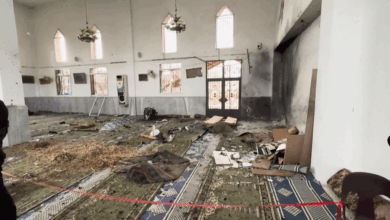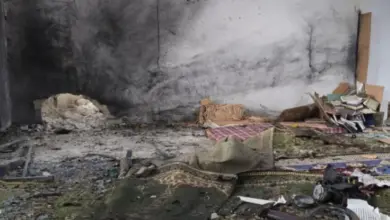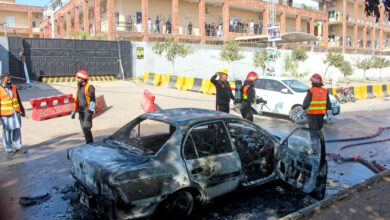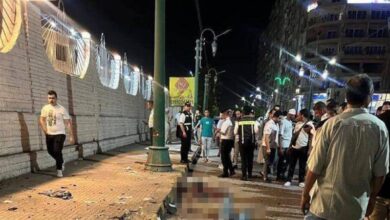Swedish police investigating two blasts that rocked central Stockholm Saturday, killing the suspected bomber and wounding two, said on Sunday they had good leads into what they said were "terror crimes."
Before the explosions, the Swedish news agency TT received a threatening letter about Sweden’s military presence in Afghanistan and caricatures of the Prophet Mohammad drawn several years ago by a Swedish cartoonist.
Anders Thornberg, director of operations at the Security Police, said police could neither confirm that the man who died was a suicide bomber nor discuss his identity as some family members had not yet been informed.
"We are investigating this as terror crimes according to Swedish law … we have not raised the security (threat) level," Thornberg said, adding police were stepping up their presence in the capital.
The incident follows several nervous months in Europe after a US travel alert about possible attacks by militants and a failed bid by a Yemen-based al Qaeda group to use air cargo to send parcel bombs via Europe to America.
"Other European capitals must be worried about the fact that this happened in a capital city in the run-up to Christmas," said Claude Moniquet, head of the European Strategic Intelligence and Security Center think-tank in Brussels.
"It could be a signal to other potential attackers to prompt them to attack at this time."
The incident began when a car burst into flames near a busy shopping street in the city centre, followed by explosions inside the car which police said were caused by gas canisters.
The second explosion, about 300 metres (yards) away and 10-15 minutes later, killed one man and wounded two people.
"Most worrying attempt at terrorist attack in crowded part of central Stockholm. Failed — but could have been truly catastrophic," Foreign Minister Carl Bildt said in a message on Twitter, which was also shown on his blog.
Police vans cordoned off several streets around the body and towed away the car. The rest of the city centre was calm.
Swedish newspapers said the man had blown himself up. Dagens Nyheter quoted a medic as saying: "It looked as if the man had been carrying something that exploded in his stomach. He had no injuries to the face or body in general and the shops around were not damaged."
Security police offered no other details as to how the man triggered the explosions.
"As far as we know, it looks like he was working for himself, but we have to be really sure so we are investigating that there could be more perpetrators," Thornberg told Reuters.
The newspaper Aftonbladet quoted a source as saying the man was carrying six pipebombs, of which one exploded, and a rucksack full of nails and suspected explosive material.
The paper quoted witnesses as saying the man was shouting in what was apparently Arabic.
TT said the email it received was also sent to the Security Police and had sound files in Swedish and Arabic.
"Our actions will speak for themselves, as long as you do not end your war against Islam and humiliation of the Prophet and your stupid support for the pig Vilks," TT quoted a man as saying in one recording.
TT said the threat was linked to Sweden’s contribution to the US-led NATO force in Afghanistan, where it has 500 soldiers, mainly in the north.
It also referred to caricatures of the Prophet Mohammad by the Swedish artist Lars Vilks, who depicted the Prophet with the body of a dog in a cartoon in 2007.
Most Muslims consider any depiction of the founder of Islam offensive.
British Home Secretary Theresa May told Sky News: "The Swedish government, as I understand it, have indicated they believe this was a terrorist attack but of course we need to look at the details. We will be talking to them about the details of that attack."
In March, an American who called herself "JihadJane" was charged with plotting to kill Vilks. In May, arsonists tried to set fire to his house.
Vilks, contacted by Reuters Television, said: "This is the first casualty of my project. It was an act against the Swedish people to scare them and not me. The good news was that a terrorist died and not someone else."
Evan Kohlmann, a US terrorism consultant, said: "Given the scale of this attack and the target, I suspect this is a homegrown local extremist who may or may not have connections to any actual terrorist organisation."




